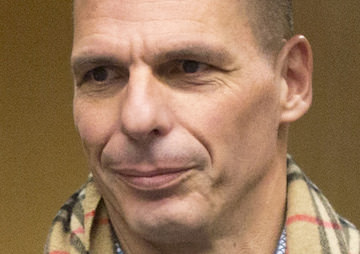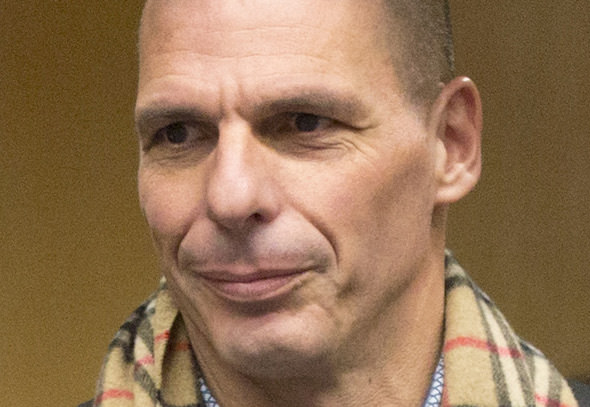NYT Criticizes Syriza Finance Minister, Gets It Wrong
The New York Times fell on its face when it suggested that Greek Finance Minister Yanis Varoufakis (pictured here) did not understand the basic debt dynamics of his country, writes Andy Robinson at Fairness & Accuracy in Reporting.

Greek Finance Minister Yanis Varoufakis. (AP/Virginia Mayo)
The New York Times fell on its face when it attempted to caricature the new anti-austerity Greek government as “dangerously naive” by suggesting that its finance minister, Yanis Varoufakis, did not understand the basic debt dynamics of his country, writes Andy Robinson at Fairness & Accuracy in Reporting.
The ill-executed effort, made in late January by Times reporter Liz Alderman, included an erroneous definition of an accounting concept at the center of the Greek debt problem (emphasis added):
When pressed to describe how Greece would pay for bonds falling due in the coming months without taking the €7 billion installment, Mr. Varoufakis replied, “Let’s not talk about details.” To SYRIZA’s detractors, such remarks might signal that the new government does not understand the magnitude of Greece’s financial challenges. But Mr. Varoufakis suggested that the government could finance its obligations by reducing the target for the so-called primary surplus, the amount of cash in Greece’s coffers after expenses and interest payments.
Robinson writes that “Alderman got the primary surplus back to front. The definition should actually be before interest payments — the primary surplus being a measure of whether a government would be spending more than it takes in if it weren’t paying back past borrowing. Could it be that the Times’ reporter does not understand the magnitude of Greece’s financial challenges?
“Varoufakis surely does. He is a top economist, author of the influential Modest Proposal for Resolving the Eurozone Crisis, a Keynesian plan offered as an alternative to austerity. Before being named Finance minister last week, he was working on debt dynamics with James Galbraith at the University of Texas at Austin.”
— Posted by Alexander Reed Kelly.
Independent journalism is under threat and overshadowed by heavily funded mainstream media.
You can help level the playing field. Become a member.
Your tax-deductible contribution keeps us digging beneath the headlines to give you thought-provoking, investigative reporting and analysis that unearths what's really happening- without compromise.
Give today to support our courageous, independent journalists.






You need to be a supporter to comment.
There are currently no responses to this article.
Be the first to respond.